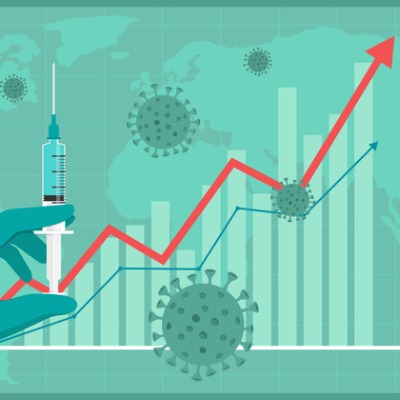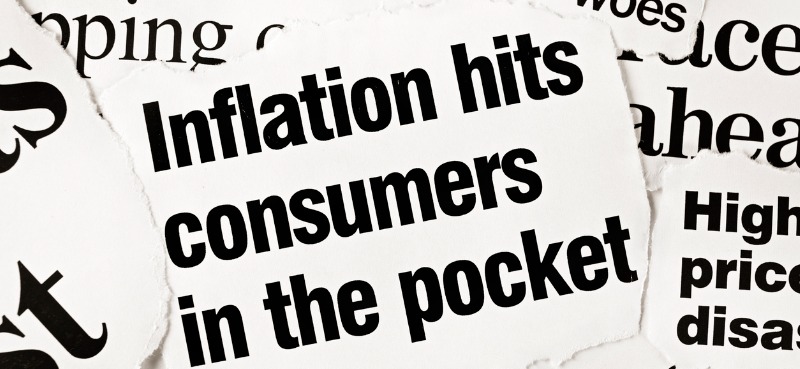On Tuesday, Margaret Keenan, a 90-year-old grandmother, became the first person to be vaccinated against COVID-19.
Mass vaccinations have begun… and the market is up on the news. Shares of several major vaccine winners have already rallied multifold this year.
If you already have exposure to these winners—congratulations! Smaller biotech plays—like Moderna (MRNA) and BioNTech (BNTX)—are up multifold in just a few months. But with year-to-date (YTD) gains of nearly 700% for Moderna, and more than 250% for BioNTech, major vaccine-fueled gains are likely behind them.
If you missed out on these gains, don’t worry—the vaccine is here to stay. And larger players like Pfizer (PFE) are lagging… which creates a long-term buying opportunity.
Plus, there are several overlooked companies set to benefit. Below, I list three of my favorites—stocks that also pay dividends…
But first, some background…
The U.K. was first to approve the vaccine created by Pfizer and its German partner BioNTech—and the first to start the mass vaccination. But here in the U.S., the regulatory process is also well underway.
The U.S. Food and Drug Administration (FDA) is set to approve the Pfizer vaccine after today’s (December 10) meeting—because it views the vaccine as safe and effective. About 6.4 million doses should be immediately available.
Next Thursday, the FDA advisory committee will discuss the emergency use authorization for Moderna’s vaccine.
It’s a great victory for science that large pharma and biotech companies have managed to develop a vaccine for a novel virus in such a short period of time.
Naturally, investors have already bid up share prices of the leading vaccine companies, including Moderna, which I first mentioned in January. Moderna is up more than 170% in the past three months alone—not to mention its almost 700% gain from the beginning of the year. It’s followed by BioNTech, up about 100% in the past three months, and 270% YTD. Pfizer is the laggard of the group—but it still beat the market by almost 15 percentage points in the past three months.

It’s easy to understand why these stocks are up so much.
The vaccine approval might also mean investment opportunities outside big pharma and small biotechs… Many publicly-traded companies will be essential—from vaccine creation and manufacturing, storage, transportation, and ultimately, global distribution and administration. The U.S. alone likely needs more than 600 million doses.
Both Pfizer and Moderna vaccines require a double dose for immunity. Therefore, someone has to make sure a person gets both doses, and gets them on schedule. This isn’t a trivial task—especially given the size of the population… and the potential investment required from all companies involved. Plus, the Pfizer vaccine requires deep refrigeration, well beyond your standard freezer.
Not every company will rise to the challenge… and only a few have the required assets and personnel to play a key role in the process.
Among potential beneficiaries, I like CVS Health (CVS), one of the leading distribution companies set to be involved in last-mile vaccine delivery, and possibly administration.
CVS is a national healthcare leader. It has a massive retail pharmacy presence, a wholesale distribution business (also known as PBM, or pharmacy benefit management, acquired in 2006 in a $21 billion deal with Caremark)—and as of 2018, it owns Aetna, a major U.S. health insurance company.
CVS is already part of vaccine distribution efforts to nursing homes and assisted-living facilities… and its nearly 10,000 retail pharmacy locations across the U.S. will receive significant boosts to foot traffic and revenue as part of the distribution process.
CVS has also bid to use its army of pharmacy technicians to help administer the vaccine. Even if the bid fails, CVS will still benefit, thanks to its 1,100 MinuteClinics located inside its stores.
At current levels, CVS looks good as a potential long-term holding. It’s an inexpensive stock, trading at less than 10 times (10x) next-year earnings… and it pays a market-beating 2.7% annual dividend. (As part of its massive $69 billion acquisition of Aetna—and because of the capital outlay and debt required—CVS promised to keep its $0.50 quarterly dividend steady… but not growing, for now.)
Another health care stock trading in bargain territory and poised to benefit from vaccine demand is Becton Dickinson (BDX).
Becton Dickinson, a medical technology company, is the largest manufacturer of injection devices in the world.
Every year, BDX manufactures and sells billions of syringes and needles. This makes it a natural beneficiary of any increase in vaccine demand… and a natural partner of the U.S. government.
Already, in partnership with BARDA (the Biomedical Advanced Research and Development Authority), the company is receiving an estimated $42 million for its $70 million capital project taking place at the company’s Nebraska manufacturing facility. In return, BARDA will get priority access to injection devices from these new manufacturing lines.
Plus, Becton Dickinson has been receiving pandemic orders from other countries, including the U.K. and Canada, the two countries that have already approved the Pfizer vaccine.
BDX is also an essential part of the testing effort—the company makes swabs for flu and COVID-19 testing, as well as COVID-19 rapid molecular diagnostic tests.
BDX isn’t as cheap as CVS… but it’s still much less expensive than the overall market, trading at a forward price-to-earnings ratio (P/E) of about 18x. For comparison, the S&P trades at a forward P/E of 26.
With a yield of 1.4%, BDX might not be a major income stock in the S&P 500. But it’s been growing its dividends for 49 years straight, with the latest 5.1% quarterly dividend increase (to $0.83 per share) announced just a few days ago, on November 24.
BDX is still down some 11% year to date… but I don’t expect the stock to stay this low for long, thanks to the company’s business strength and COVID vaccine leverage.
A third stock comes from a totally different part of the market. Officially classified as a materials stock, Air Products and Chemicals (APD) also has its hand in the healthcare industry.
APD is one of the largest industrial gas suppliers in the world. The company also makes dry ice—demand for which will skyrocket as vaccine distribution accelerates.
Dry ice is an essential industrial gas product—because it’s simply carbon dioxide in its solid form.
APD is one of the largest carbon dioxide manufacturers globally… and last summer it bought ACP Europe, continental Europe’s largest independent carbon dioxide supplier.
Dry ice is a ready solution for the vaccine, but it can only provide sufficient refrigeration for five days. This should be enough in most cases… but for longer-term refrigerations, other solutions may be needed.
APD has a hand there as well—it makes liquid nitrogen and is the largest supplier of helium in the world. Both are industrial gases also used in deep refrigeration, so expect a boost in demand for these gases, too.
APD is more than just a COVID play… it’s also a green energy play, given its commitment to green hydrogen. The company is going to be an equal owner of a $5-billion green hydrogen-based manufacturing facility in Saudi Arabia; the project will be powered by renewable energy and is expected to be onstream in 2025.
Like CVS and BDX, APD is an income-generating stock… and its current yield of 2% (higher than the market’s 1.7%) is growing, too.
Up some 14% year to date (but down about 12% over the past three months), APD is an attractively valued stock that could be paying dividends (directly and via growing share-price) for years to come. Its COVID-related boost is just the icing on the cake.
As the vaccines are shipped around the country—and all over the world—these three companies are primed to soar.
P.S. I have my eye on a few other names that could supercharge your income for years to come on the back of the vaccine announcement…
And my Unlimited Income members will be the first to hear about opportunities like this. To get immediate updates on my COVID plays… along with a full portfolio of income ideas you’ll rarely hear about anywhere else… join today.




















